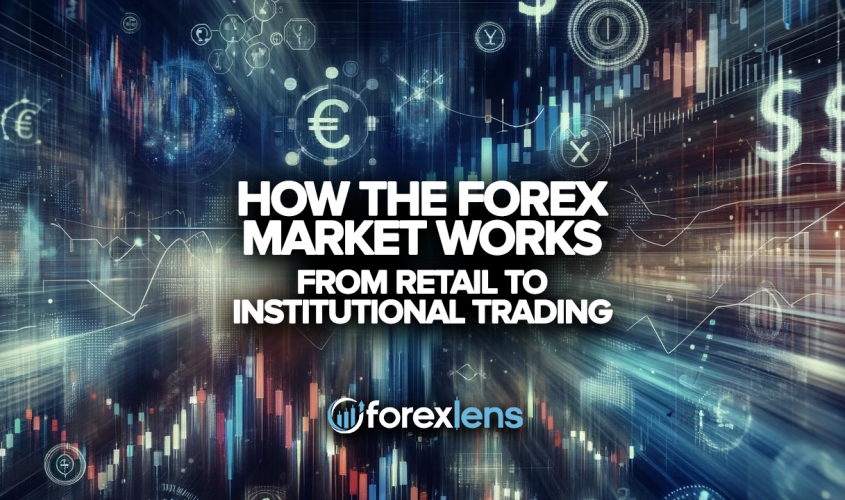The Forex (foreign exchange) market is a global decentralized or over-the-counter (OTC) market for trading currencies. It’s not just about retail traders buying and selling currencies in the hope of making a profit; it encompasses a wide range of participants and operates on multiple levels. Here’s an overview of how the entire Forex industry works, covering both retail and institutional aspects.
Major Participants
- Central Banks and Governments: Central banks and governments are among the most influential participants in the Forex market. They use the market to implement their monetary policies, control inflation, and adjust interest rates. Their operations can have a significant impact on currency values.
- Banks and Financial Institutions: Major banks and financial institutions form the backbone of the Forex market, facilitating the bulk of currency transactions for both themselves and their clients. This interbank market is a wholesale market where banks exchange currencies at floating rates.
- Corporations: Multinational corporations participate in the Forex market to conduct trade and business in foreign countries. They need to exchange currencies to pay for goods and services abroad or to convert profits made in foreign currencies into their domestic currency.
- Investment Funds: Hedge funds, mutual funds, and pension funds trade currencies as part of their asset allocation strategies to hedge against currency risk or to seek profit from currency fluctuations.
- Retail Forex Brokers and Traders: Retail brokers act as intermediaries between the individual retail trader and the larger Forex market. Retail traders, using leverage provided by brokers, speculate on the direction of currency price movements.
How Trades Are Executed
Forex trading occurs directly between two parties in an over-the-counter (OTC) market. This means there is no centralized exchange like there is for stocks. Instead, trading is conducted electronically over computer networks between traders around the world. The market is open 24 hours a day, five and a half days a week, and currencies are traded worldwide in the major financial centers of London, New York, Tokyo, Zurich, Frankfurt, Hong Kong, Singapore, Paris, and Sydney—across almost every time zone.
Types of Transactions
- Spot Market: The spot market deals with transactions made immediately “on the spot” using the current market price. This is the primary Forex market where currency pairs are exchanged, and prices are determined based on supply and demand.
- Forward Market: In the forward market, transactions are agreed upon now, but the delivery and payment of the currency take place at a future date. These contracts are customizable and are used to hedge against currency risk.
- Futures Market: Similar to the forward market, the futures market involves contracts to buy or sell a certain amount of currency at a specified price on a set future date. Unlike forward contracts, futures are standardized and traded on exchanges.
- Swaps: A swap is a simultaneous purchase and sale of identical amounts of one currency for another with two different value dates (normally spot to forward).
Pricing and Exchange Rates
Currency prices are influenced by a multitude of factors including economic indicators, interest rates, politics, and overall market sentiment. Exchange rates are determined by the foreign exchange market, where currency values fluctuate constantly due to the dynamics of supply and demand.
The Forex market is vast and complex, encompassing a wide range of participants from central banks to retail traders. It operates through various types of transactions, including spot, forward, and futures markets. The decentralized nature of the market, coupled with its global reach and 24-hour activity, makes it unique among financial markets. Understanding the full scope of the Forex industry offers a clearer view of how global currency markets function and the roles played by different entities within this ecosystem.



